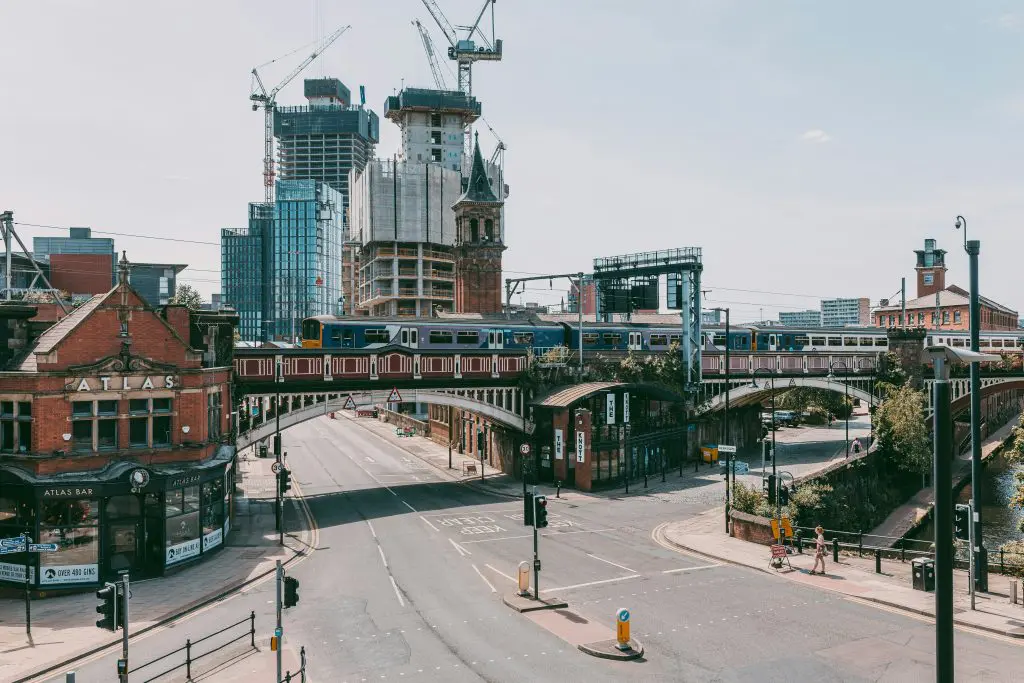In recent years, Manchester Property Investment has surged in popularity, and it’s easy to understand why. With the city’s booming tech and finance sectors acting as economic powerhouses, housing demand has risen sharply—creating compelling opportunities for landlords, developers, and buy-to-let investors alike. As Manchester continues to evolve from a post-industrial city into a global business hub, it’s becoming one of the most exciting property markets in the UK.
A Northern Powerhouse with Global Ambitions
Once the beating heart of Britain’s textile trade, Manchester has reinvented itself over the past two decades. Today, it’s a magnet for digital start-ups, financial firms, and multinational corporations. From the gleaming towers of Spinningfields to the innovative co-working spaces of the Northern Quarter, the city has become a leading destination for skilled professionals and ambitious graduates.
The result? A consistent influx of young, educated workers in need of quality housing—both to rent and to buy. This rising demand is not only reshaping the city’s skyline, but also driving sustained interest in Manchester property investment.
Tech: A Thriving Digital Ecosystem
Manchester’s tech scene is no longer in London’s shadow. The city now ranks as the UK’s largest tech hub outside the capital, employing over 60,000 people across areas such as cybersecurity, software development, data analytics, and AI. Major players including Amazon Web Services, Hewlett-Packard, and IBM have established a strong presence here, supported by a thriving ecosystem of start-ups and scale-ups.
A standout example is the Manchester Science Park, a sprawling innovation campus that continues to attract cutting-edge companies and R&D investment. With government-backed funding and partnerships with the University of Manchester and Manchester Metropolitan University, this hub alone supports thousands of jobs and a wide network of businesses.
These jobs attract high earners, many of whom seek centrally located flats or modern suburban homes with strong transport links. The need to house this talent is a key factor behind growing rental yields and upward pressure on property prices.
Finance: A Regional Banking and Professional Services Stronghold
Parallel to the rise in tech has been the solid expansion of Manchester’s finance and professional services sector. The city is home to the largest regional financial economy in the UK, employing over 100,000 people across banking, insurance, asset management, and fintech.
Major institutions such as Barclays, HSBC, Santander, and BNY Mellon have not only set up offices here—they’re expanding them. Spinningfields, often dubbed “Manchester’s Canary Wharf,” is the epicentre of this financial boom, housing not only banks but also legal and accountancy firms that support the ecosystem.
These white-collar professionals typically demand high-specification homes in safe, well-connected areas. Whether it’s a new-build flat overlooking the River Irwell or a Victorian terrace in Chorlton, the demand for quality housing is fuelling both price growth and rental competition.
Inward Migration and Graduate Retention
Manchester’s universities continue to play a pivotal role in feeding both sectors with fresh talent. The University of Manchester, Manchester Metropolitan University, and the University of Salford collectively produce tens of thousands of graduates each year. What’s more impressive is the retention rate: over 50% of graduates stay in the city after completing their studies—well above the national average.
This retention fuels a young, professional demographic with stable incomes and growing purchasing power. These individuals often prefer to live in or near the city centre, and many remain renters for several years, creating a reliable and expanding rental market.
For investors, this demographic sweet spot translates into consistent occupancy rates, minimal void periods, and long-term tenant demand—all essential ingredients for profitable property investment.
The Impact on Manchester’s Property Market
The combined growth of the tech and finance sectors is having a profound effect on Manchester’s housing market. According to data from Zoopla and Rightmove, average house prices in the city have risen by over 34% in the past five years, significantly outperforming many other UK regions.
Rental demand is just as strong. In prime areas such as Deansgate, Ancoats, and Salford Quays, competition for rental properties remains fierce. Renters are often willing to pay a premium for homes that offer modern amenities, secure parking, and proximity to key business districts.
For investors, this translates into some of the highest rental yields in the UK. While yields in London have stagnated around 3–4%, Manchester consistently delivers yields of 5–7%, with certain postcodes—like M14, M6, and M19—exceeding even those figures.
Key Neighbourhoods Benefiting from Sector Growth
A number of neighbourhoods are seeing direct benefits from the city’s economic expansion. Here are a few standout areas for 2025 and beyond:
1. Ancoats
Once an industrial wasteland, Ancoats has undergone rapid regeneration and now ranks among the most desirable city-centre postcodes. It appeals strongly to young tech workers thanks to its independent cafés, coworking spaces, and walkable proximity to the Northern Quarter and Spinningfields.
2. MediaCityUK (Salford Quays)
The home of the BBC, ITV, and numerous tech firms, MediaCityUK has become a residential hotspot. Modern apartments, waterfront views, and easy access to both the city centre and Trafford make it ideal for finance and media professionals.
3. Castlefield
Popular with both tech and finance workers, Castlefield offers a mix of new developments and converted mills. Its tranquil canals and green spaces offer a calm alternative to the hustle and bustle of the city centre—while still being within walking distance of it.
4. Fallowfield & Withington
These traditionally student-heavy areas are beginning to attract young professionals as well. Improved transport links and more affordable prices are making them increasingly popular among first-time buyers and investors alike.
Future-Proofing Through Infrastructure
Manchester’s continued investment in infrastructure is crucial to sustaining its economic and housing growth. Projects like HS2 (Phase 2b)—although still under review—promise faster links to Birmingham and London, while Metrolink expansion is improving local connectivity. The city’s airport, already the UK’s third busiest, continues to grow its international reach, reinforcing Manchester’s global business credentials.
This infrastructure supports job growth, unlocks new areas for development, and ensures the city remains attractive to domestic and overseas investors alike.
Final Thoughts
The tech and finance boom in Manchester is not a short-term trend—it’s a structural shift that’s transforming the city’s economic and social fabric. As these sectors grow, so too does the demand for housing, both for rent and purchase. For those considering Manchester Property Investment, the conditions in 2025 remain highly favourable.
From a diverse employment base to a thriving graduate population and ambitious regeneration plans, Manchester offers a compelling blend of growth, resilience, and return on investment. In short, it’s a city building for the future—and investors who get in now stand to reap the long-term rewards.




